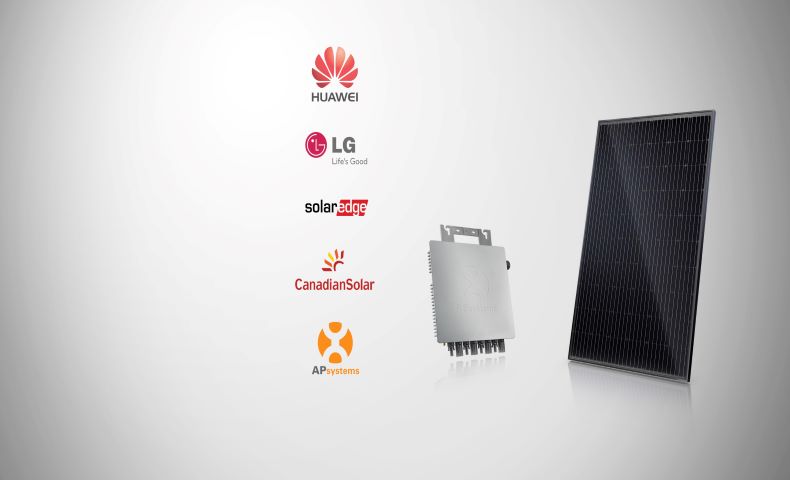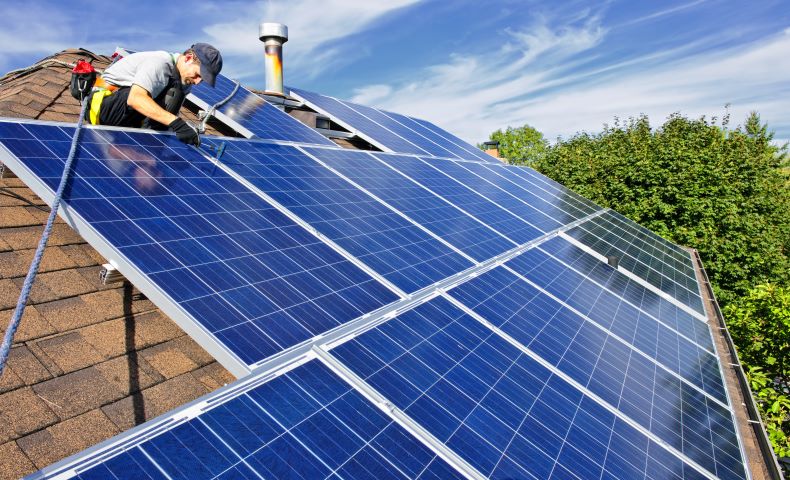When it comes to solar-powered systems, they are build to last and designed so that you rely on them to produce solar electricity for at least 25 years. But in some unlikely cases, the individual components of solar-powered systems could malfunction or break. If you get a solar panel installation there is a possibility that your solar power inverter may fail, here’s what you need to know if that happens.

It’s uncommon for the equipment of solar panels to fail, but if it does, it is important to know what to do. In the rare event that your solar power inverter does fail, the best resource is to contact the solar installer.
The solar company that completed your solar panel installation is likely familiar with both of the unique nature of your solar-powered systems as well as the specifics of the solar power equipment that was installed. The solar company can help you diagnose what the issue is, if you determine a course of action, and order any replace equipment as necessary.
The solar company that performed your solar panel installation is more than likely familiar with the unique nature of your solar-powered systems and the specifics of the solar power equipment that is installed. The solar company will be able to help you diagnose the issue, determine a course of action, and order any necessary replacement equipment.
If you can’t remember your solar installer or the solar company went out of business, there are alternative options. One option would be to check out other pre-screened solar companies that are in your area. One of the solar companies that are in your area may be willing to help you out. The second option would be to get in touch with the company who manufacturers your solar power inverter. The solar power company that manufacturers your solar power inverter will be able to direct you to solar installers in the area that they work closely with. The last option would be that there’s a number of repair service companies for solar panels and their equipment, who would be able to take over the maintenance of your solar-powered system.
Most importantly, many or all of the potential malfunctions that happen with solar power equipment what the length of the warranties are for the various pieces of equipment that come with your solar panel installation.
How to Diagnose Different Solar Power Inverter Issues
The majority of the issues with solar-powered systems are discovered very after the solar panel installation is completed. There’s a very slight possibility that the solar power equipment will be defective when it comes out of the box, but the good news is that malfunction can be caught early on. In this case, you will most likely have the solar installers contact information on hand, and they will work to find the equipment that isn’t working and replace it.
Looking past the quickly-discovered, out-of-the-box malfunctions, there are a couple of steps you can take to help your solar company diagnose what the issue is. The first thing that you will look at is the production estimate for your solar-powered system. Has the overall solar-powered system output dropped from what you're expected or are you not seeing any production at all from your solar-powered system? If the answer is no production recorded at all, the issue might be as simple as your solar power inverter just lost the connection with the internet. This is the most common way that most solar power inverter “fails”, and is a quite simple fix that your solar installer might be able to walk you through the process over the phone.
If your solar-powered system’s output is lower than it is expected or lower than it has been in the past under similar weather conditions, you should check to see if your production monitoring app provides insight into the production of each of the individual solar panels. Given that the majority of the solar panel installations in the country include module-level power electronics, solar power inverters or power optimizers on each of the solar panels, your solar electricity consumption app might provide insight into how each specific solar panel and solar power inverter or optimizer is performing, allowing you to pinpoint the exact problem.
Finally, if neither of the diagnostics uncovers the issue, the failure could be at a central location, such as at the large central solar power inverter included in with a string solar power inverter or strong plus power optimizer set up, or at the junction box that is included in a microinverter solar-powered system.
In all of these circumstances, your solar company will be able to quickly fix the problem by, reconnecting your solar power inverter to the internet, or work proactively with the manufacturer of the solar power equipment to replace the damaged equipment.

Ask Your Solar Installer about Maintenance
While getting your solar panel installation, there are a few important questions that you should ask your solar installer to ensure that you are prepared in the rate even that your solar power equipment does fail. The key question is going to be asking about warranties. You should be aware of the solar company’s workmanship warranty, and the warranties for each piece of solar power equipment that is installed on your property. Most importantly, in some instances, there could be a mismatch between the warranties for different components included in your solar panel installation. For instance, your solar panels might have a longer warranty than your solar power inverters. However, if you choose to install a string solar power inverter plus solar power optimizer system, the central solar power inverter and the solar power optimizers could possible have different warranty lengths.


Input your address to see if it is solar friendly and how much you can save with solar.
Great. Your address is perfect for solar. Solar incentive is still available. Select monthly utility cost and calculate the size of solar system you will need now.
| kw System size | years Payback period | Lifetime savings |
No money down, 100% finance is available.
|
|
Want to Work with the Most Reputable Solar Installers? Sign Up Here! |
Comments